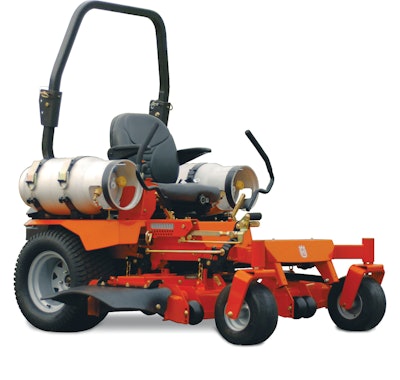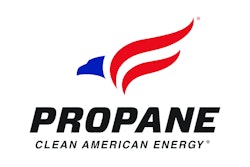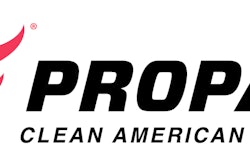
Changes in the economy and environmental regulations have forced many landscape contractors to assess their fleets and fuel options. This presents an opportunity for dealers to add to their product and service offering.
Richard Blake and Jay Godfrey, co-owners of McCoy’s Lawn Equipment Superstore in Austin, TX, were hearing more and more about ozone action days preventing their contractor customers from running traditional equipment. At the time they were also starting to think about adding to their product lines. They decided the perfect solution for their business and customers would be propane-powered mowers.
“We decided to come out with a mower that was powered by an alternative fuel that would allow contractors to start up and run on the mornings of ozone action days and maintain the same work schedules,” explains Blake. The dealership now converts mowers and vehicles, and sells propane-fueled 21- to 72-inch mowers from several manufacturers.
McCoy’s works with a wide customer base, including lawn and landscape companies, government entities and park/recreation departments. In offering the propane-powered mowers, McCoy’s does a lot of business with area municipalities. They receive further assistance and incentives from the Propane Education & Resource Council (PERC) in selling the machines.
“Right now there is a $1,000 rebate from PERC for having a unit converted over to propane,” says Blake. “Because an average 72-inch mower with a 35-hp engine would typically run $13,000, the rebate makes it a no-brainer. Many manufacturers also offer bid assist.”
A Smart Buy for Contractors
Carrying the propane-powered mowers was an easy decision for Blake and Godfrey, and when contractors hear of the benefits it’s usually an easy choice for them, too. Propane mowers are powerful machines that save contractors on the cost of fuel and maintenance.
“With propane you don’t have to drain your gas tanks or deal with the hassles of contaminated fuel and the need for fuel disposal,” says Blake. “The fuel is very clean and will stay good in the tanks virtually forever.” Contractors no longer have to worry about spilled fuel in transportation or theft through siphoning.
The clean fuel also takes less of a toll on the engine than gasoline. This translates to less time and money spent on repairs and maintenance, and more time out taking care of customer properties.
“With propane, your carbon factor simply goes away,” says Blake. “We had guys that were changing their oil every 25 hours with gasoline. Now they are changing their oil once a year. Additionally, it greatly increases engine life because the propane temperature of -44º F is like a treat to all of the air-cooled aluminum engines.”
To further sell customers on propane, Godfrey compares the price of gasoline to that of propane, and computes the operating cost of miles driven.
In addition to benefits for the engine and cost savings, contractors in some areas can also enjoy the perks when making bids. “In Austin, the municipalities will actually let a landscaper bid 2-4% higher if they are using alternative fuel,” says Blake.
Handling Propane
At McCoy’s, taking on propane meant obtaining special certification and making changes to the facility to better handle the demands of propane installs. The dealership had to become licensed through the Railroad Commission in order to fill and handle tanks, and to do installations on mowers and vehicles.
“In Texas you have to go through an initial course and then every two years attend an update school,” explains Godfrey. “Each store has a manager that attends, and Richard and I keep updated as well.”
Contractors that run on propane can fill their tanks right at McCoy’s. It’s convenient for the customers, and at $2.50 a gallon offers a small boost in profits.
“Since we were going to be talking our customers into the conversions, we wanted to be able to offer them a convenient place to fill their tanks,” explains Godfrey. “We give the customers who do their conversions with us a better price on it.”
McCoy’s sells between 70,000-80,000 gallons of propane a year. A cement slab was poured and a cage for the propane was easily installed. Adjustments also had to be made in the shop to handle conversions and maintenance. Most of the propane work is done at their larger location with three large bays and an automobile lift. They have a second location with one service bay.
“Propane is a small percent of revenue at only 2-3%,” explains Godfrey. “It takes a lot of $2.50/gallon propane to make up for a $10,000 mower, but I encourage other dealers to get into it. It’s just another great way to become a one-stop shop for your customer.”
















![Gravely Pro Turn Mach One My23 Dsc03139 Edit 1200x800 5b2df79[1]](https://img.greenindustrypros.com/mindful/acbm/workspaces/default/uploads/2025/10/gravely-pro-turn-mach-one-my23-dsc03139-edit-1200x800-5b2df791.BucBnDoN22.jpg?ar=16%3A9&auto=format%2Ccompress&fit=crop&h=135&q=70&w=240)



